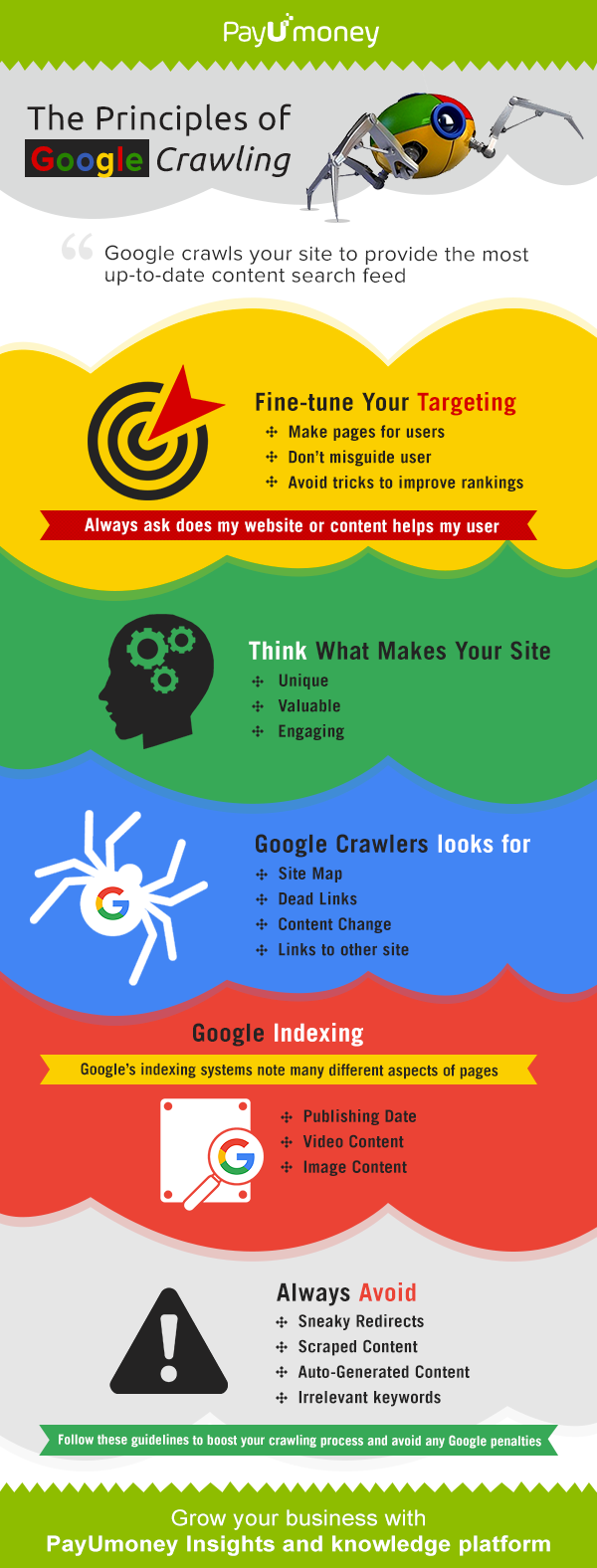Google is the most powerful medium that controls and drives traffic. Billions of visitors visit Google every day and these visits are landed on millions of websites. This journey starts much before you enter a search query in Google. Your search query travels through trillions of documents before Google flashes search result for your query.
Google Algorithms scan millions of websites before showing it to you in the search term. These websites are crawled by Google on a regular basis. Many factors control this crawling process. Some of these factors are page ranks, content quality, content frequency and links to your web-page.
Thousands of Google algorithms determine how frequent to crawl your website and how many pages to crawl. Google crawls your site to provide the most relevant, up-to-date and relevant content to the search feed.
Basic Principles To Keep In Mind
Google crawlers and webmaster tools are designed such that they uphold the basic principle to provide the best user experience to its users. You should focus on incorporating value prepositions through user experience rather than just focusing on loopholes to improve SEO rankings.
Always keep in mind to:
- Make pages for users:
- Don’t misguide user
- Avoid tricks to improve rankings
Always ask yourself that “does my content helps my users?” and if you get a positive answer, then trust me, you are in the right book of the Google. Think about what makes your website unique, valuable and engaging.
Google Crawlers Look For:
Google crawls your website by looking at the Site Map and the quality of content posted. It follows the links attached to your web-pages. It keeps in mind all the important factors which a user or you yourself consider while searching your query on Google. Remove all the dead links redirecting to your website.
Google crawls your website link by link and thus feed data in their servers. We therefore advise you to constantly refresh your content in order to invite Google crawlers at your gate.
Google Indexing
There are billions of pages and Google gather these pages through site crawling. They create an index after each crawl. This is exactly like the index present in the end of every book. This index helps Google to flash search feed when you enter a search query.
For example: Google has created a dedicated index for Payment Gateway Providers, and it flashes ‘PayU’ when you enter free payment gateway keyword in your search query.
Google index also keeps in mind the quality and relevancy of content posted. It means that if you search for a “Free Payment Gateway”, you don’t want a page where “Free Payment Gateway” is written hundred times. But you want a page which speaks of various aspects of the payment gateway, that too in different notes such as content, images, videos and infographics.
Therefore we at PayU advise you to maintain a keyword density of not more than 1 percent in the content you publish.
Always Avoid
- Sneaky Redirects
- Scraped Content
- Auto-Generated Content
- Irrelevant keywords
Google prefers site which follows quality guidelines. You should avoid any sneaky redirect which is just meant to influence Search Engine Optimization. Always focus on generating user-friendly content that incorporates value preposition.
We hope that you will follow these guidelines and invite Google Crawlers to your website more frequently. Always keep in mind that “Content is King” and it holds the maximum value that influences Google crawlers.
Also read our blog on, “How to bring your business to the top of Google search”. Follow PayU Knowledge Platform and become a thought leader.








Leave a Comment